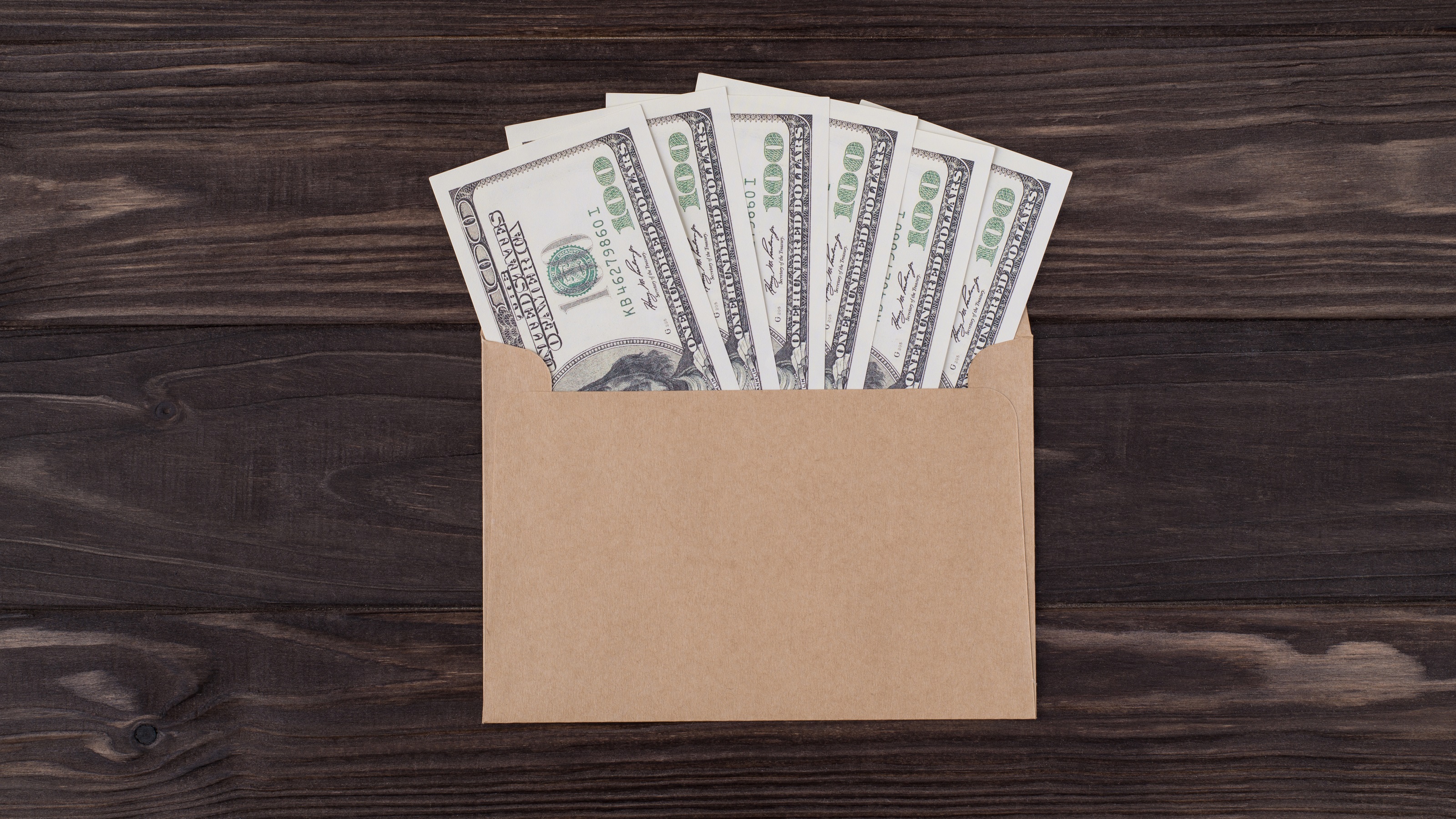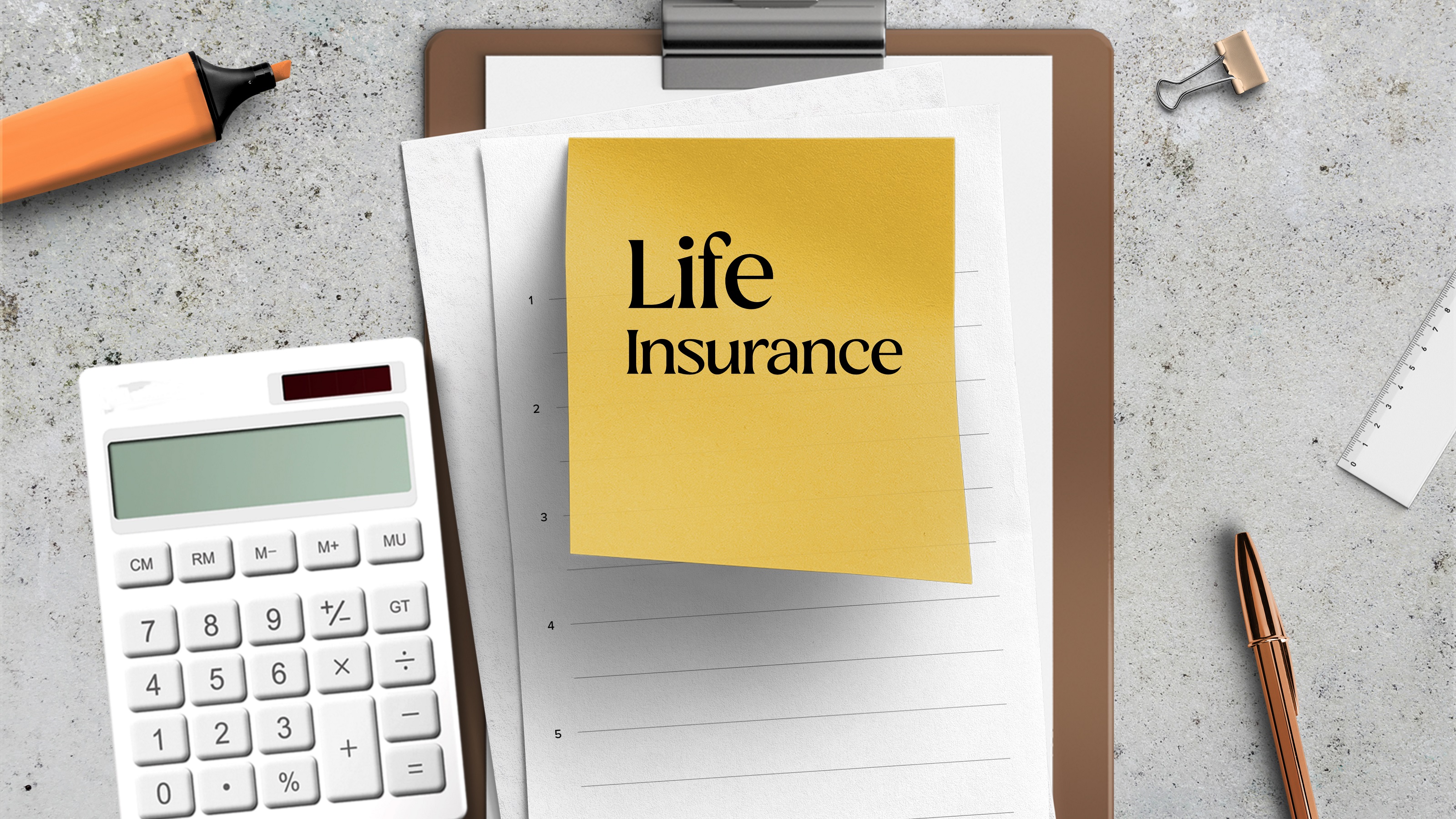What Is a Good Inheritance? Six Great Assets to Inherit
Leaving a good inheritance takes planning. If you want to help your heirs, these are the best assets to leave them.

Erin Bendig

Profit and prosper with the best of Kiplinger's advice on investing, taxes, retirement, personal finance and much more. Delivered daily. Enter your email in the box and click Sign Me Up.
You are now subscribed
Your newsletter sign-up was successful
Want to add more newsletters?

Delivered daily
Kiplinger Today
Profit and prosper with the best of Kiplinger's advice on investing, taxes, retirement, personal finance and much more delivered daily. Smart money moves start here.

Sent five days a week
Kiplinger A Step Ahead
Get practical help to make better financial decisions in your everyday life, from spending to savings on top deals.

Delivered daily
Kiplinger Closing Bell
Get today's biggest financial and investing headlines delivered to your inbox every day the U.S. stock market is open.

Sent twice a week
Kiplinger Adviser Intel
Financial pros across the country share best practices and fresh tactics to preserve and grow your wealth.

Delivered weekly
Kiplinger Tax Tips
Trim your federal and state tax bills with practical tax-planning and tax-cutting strategies.

Sent twice a week
Kiplinger Retirement Tips
Your twice-a-week guide to planning and enjoying a financially secure and richly rewarding retirement

Sent bimonthly.
Kiplinger Adviser Angle
Insights for advisers, wealth managers and other financial professionals.

Sent twice a week
Kiplinger Investing Weekly
Your twice-a-week roundup of promising stocks, funds, companies and industries you should consider, ones you should avoid, and why.

Sent weekly for six weeks
Kiplinger Invest for Retirement
Your step-by-step six-part series on how to invest for retirement, from devising a successful strategy to exactly which investments to choose.
Imagine your family’s peace of mind when they see an estate plan that reflects your values, your vision, and your deep care for their future. Take some time to consider: what is a good inheritance? By carefully considering this question, you’ll build a legacy that echoes through generations.
Consolidating your accounts and simplifying your estate now will significantly ease the burden on your family later, says Michael Romero, President of Argent Trust Oklahoma at Argent Financial Group. If you fail to do so, someone will be left taking care of the more complicated property when you die, and during a very emotional period, he says.
Neil V. Carbone, trusts and estates partner at Farrell Fritz in New York, also advises that “failing to look ahead can be especially harmful when it comes to estate planning," because most problems arise after you're no longer around to fix them.
Therefore, with careful planning, you can prevent the emotional and even family-destroying fights that can happen with some of the worst assets to inherit.
If you’re able and willing to do this type of advanced planning for your heirs, here are the six best assets to leave behind as an inheritance.

1. Cash
“Cash is king when it comes to leaving an inheritance,” said Carbone. “It’s the simplest asset to deal with in terms of a transfer.”
Your heirs immediately know how much it's worth, can easily divide it according to the terms in your will, and don’t have to do any hard work to access it, versus something like real estate, which can take months to sell. Are you wondering if it's better to inherit a house or money? Money is certainly easier and more accessible.
Romero advised that if you have cash saved in several different banks, you can make life even easier for your heirs by consolidating, especially in your later retirement years. “Every bank could have different rules for distributing an account, so reducing the number could speed up the transfer.”
He warned, though, to make sure you stay within the FDIC, NCUA, and SIPC limits to keep your bank deposits safe. The FDIC insures up to $250,000 in individual deposit accounts and up to $250,000 for each person’s share of joint accounts, and the NCUA insures deposits at federally insured credit unions up to $250,000 per depositor, per insured credit union, for each account ownership category.
Carbone also recommends advising your children to consult a financial professional, especially if they are set to inherit a significant sum. “Chances are, they will have different long-term financial needs and goals than what their 80-year-old parent was doing by holding onto cash.”

2. Cash substitutes
Besides cash, Romero described a few types of accounts that are almost as effective as cash inheritance. For one, life insurance on yourself. When you pass away, the life insurance company will pay your heirs the death benefit in cash, according to the beneficiary instructions you list in the contract. This bypasses probate, so your heirs don’t have to wait for the courts to verify your will before receiving the money.
It’s a simple process. Your heirs typically just need to present your death certificate to the insurer and fill out a short form. Plus, your heirs will receive the payment income-tax-free, though the death benefit is added to the value of your estate and could be charged estate taxes.
You can use our tool below, powered by Bankrate, to compare life insurance policies today.
Bank products like money market accounts and CDs are also liquid inheritances that your heirs can easily divide and cash out right away (though they may forfeit some interest for cashing in a CD ahead of schedule).
You can set up “payable upon death,” or POD, instructions for bank accounts, which also bypass probate. “This is safer than making your heir a joint owner on the account because otherwise, they’d be able to drain the funds while you’re still alive,” said Romero.
If you use either of these assets, Romero cautioned that you should carefully plan and review the instructions. “Life insurance beneficiary and POD instructions pass by contract, not by will,” he said. In other words, even if you list something different in your will, the bank or insurance company will still pay out according to what you listed in your beneficiary and POD terms. This is why it's essential to know what is included in a will, and what you should leave out of your will entirely.
One common situation where people get in trouble is after a divorce. “It’s not uncommon to have an ex-spouse still listed, and then they inherit the money,” said Romero. Neglecting to update your will after a grandchild is born or an heir passes away can create significant risks. Romero recommends reviewing your estate plan every one to two years to ensure it remains accurate.

3. Brokerage accounts
Investments made through a taxable brokerage account, like stocks, bonds, and mutual funds, also make for attractive inheritances. They are easy to divide and value because your heirs can see the market price of these publicly traded investments. In addition, publicly traded investments are easy to sell and convert to cash.
On top of it all, your heirs could receive a significant tax benefit on these inheritances. “Perhaps Dad has been investing all his life and has held shares of Apple, IBM, and Microsoft for years. If he sold during his lifetime, he’d owe considerable capital gains taxes,” said Romero.
For example, someone who bought IBM Stock 20 years ago would have a cost basis of roughly $28 per share. If they sold at today’s price of about $304, that would be a taxable gain of $276 per share.
However, if you hold these investments until you die, you receive something called a step-up in basis, which means the investment basis goes up to the market value on the day you die. “If your heirs sell soon after you pass away, they could sell these appreciated assets owing little to no taxes,” said Romero.
This step-up-in-basis treatment also applies to real estate, an appealing tax break if you’ve owned your home or other property for many years. However, real estate can be a more complicated and expensive asset for your heirs to deal with, and more likely to lead to arguments around how to handle it. One way around this problem is to direct the executor of your will to sell the property immediately after you pass away. Your heirs then receive the cash from the sale without owing capital gains taxes.

4. Assets that quickly decrease in value
This isn't a strategy for everyone. Therefore, it should be considered in more limited circumstances.
If it looks like you might owe estate taxes at death, Carbone has a clever strategy that can help reduce the tax hit. "This strategy works if you know your heir plans on using the inheritance to buy an expensive new toy, like a Porsche or a boat," he says. "These assets lose value immediately after the purchase.”
In 2025, Ramsey Solutions reported that new cars lose 60% of their value over the first five years. Other valuable assets like boats and jewelry can depreciate even more quickly — even when they're still practically as good as new.
Rather than leaving your heirs cash, you could buy these valuable assets yourself towards the end of your life and then leave them as an inheritance. Since these assets lose value immediately, it reduces your total net worth and taxable estate.
For example, if you buy a $500,000 boat and it loses 20% in value before you die, your heirs only owe estate taxes on $400,000, not $500,000. Spread over many heirs and many purchases, this can significantly reduce the estate tax hit.
While the federal estate tax exemption in 2026 is $15 million per person, allowing individuals to transfer this amount without incurring federal estate taxes. For married couples, the exemption effectively doubles to $30 million.
Carbone said that Congress could lower it in the future. And even if lawmakers don't do so, the current law will sunset in 2026, reducing the exemption by more than half. Currently, only 12 states charge estate or inheritance taxes, so this strategy could also be useful if you live in one of those states.

5. Roth IRA
A Roth IRA is a retirement account funded with after-tax dollars. In exchange, your retirement withdrawals are income-tax-free, including your investment gains. This tax-free treatment continues when your heirs inherit the Roth IRA, making this another effective asset to leave behind.
On the other hand, if you leave behind a 401(k) or traditional IRA, your heirs would owe taxes for taking the money out. Anyone receiving an inherited retirement plan (except a spouse) must also withdraw everything within 10 years of their death, whether they need the money or not, which can push them into a higher tax bracket.
If you have both types of retirement plans, consider spending down your taxable accounts or using them for charitable donations while keeping your Roth IRA balance for a future inheritance. Another option: if you have money in taxable retirement plans, consider a conversion to a Roth IRA. You pay income tax upfront on the amount you convert, but after that, the IRA assets and future growth will not be subject to income tax when withdrawn.
Carbone warned that when considering a Roth conversion, it is important to consider the overall income tax impact.
“It may be that it’s less tax-efficient overall for a parent in a higher tax bracket to pay the income taxes necessary to make a Roth conversion than it would be for a child in a lower tax bracket to pay the income taxes on withdrawals from a traditional IRA,” said Carbone.
This strategy can take advantage of the rule allowing your heirs to spread the taxable withdrawals over 10 years, whereas with a conversion, you owe taxes on the entire balance at once.

6. Assets in a trust fund
This final suggestion is less about the type of asset you may leave and more about the way you leave that asset —in a trust fund, versus leaving the property directly to your heirs. A trust fund can help protect the inheritance of your loved ones.
“If you leave property to your heirs outright, it’s subject to the claims of their creditors and predators,” said Carbone, with predators being other people who might seek to have your family members part with their inheritance, such as a spouse who has plans on how to spend that money or who files for divorce soon after the inheritance is received and commingled with marital assets.
A trust fund can also protect your loved ones from themselves. If you worry they might spend the money too quickly, you could set up a trust that limits how much goes out over time, including passing on wealth between generations, like first payments go to your kids and then continue to your grandchildren.
Last, you could use trust funds as part of an overall estate plan strategy to reduce how much you owe in taxes. For instance, you transfer assets you think will increase in value to a trust now so that growth isn’t part of your taxable estate later.
Final word
In the end, a good inheritance isn't just about mere dollars and cents. It's about leaving a legacy that fortifies your loved ones without burdening them with unwelcome assets and taxes. By prioritizing assets like cash, Roth IRAs and brokerage accounts, you can provide financial security that grows over time and eases a difficult period.
Thoughtful estate planning today — updating beneficiaries and consulting professionals when necessary — ensures your heirs receive not just wealth, but genuine peace of mind. Ultimately, the greatest asset is one that reflects your love and care, allowing them to build on your foundation while honoring the life you lived.
Related Content
Profit and prosper with the best of Kiplinger's advice on investing, taxes, retirement, personal finance and much more. Delivered daily. Enter your email in the box and click Sign Me Up.

David is a financial freelance writer based out of Delaware. He specializes in making investing, insurance and retirement planning understandable. He has been published in Kiplinger, Forbes and U.S. News, and also writes for clients like American Express, LendingTree and Prudential. He is currently Treasurer for the Financial Writers Society.
Before becoming a writer, David was an insurance salesman and registered representative for New York Life. During that time, he passed both the Series 6 and CFP exams. David graduated from McGill University with degrees in Economics and Finance where he was also captain of the varsity tennis team.
- Erin BendigPersonal Finance Writer
-
 Quiz: Do You Know How to Avoid the "Medigap Trap?"
Quiz: Do You Know How to Avoid the "Medigap Trap?"Quiz Test your basic knowledge of the "Medigap Trap" in our quick quiz.
-
 5 Top Tax-Efficient Mutual Funds for Smarter Investing
5 Top Tax-Efficient Mutual Funds for Smarter InvestingMutual funds are many things, but "tax-friendly" usually isn't one of them. These are the exceptions.
-
 AI Sparks Existential Crisis for Software Stocks
AI Sparks Existential Crisis for Software StocksThe Kiplinger Letter Fears that SaaS subscription software could be rendered obsolete by artificial intelligence make investors jittery.
-
 Quiz: Do You Know How to Avoid the 'Medigap Trap?'
Quiz: Do You Know How to Avoid the 'Medigap Trap?'Quiz Test your basic knowledge of the "Medigap Trap" in our quick quiz.
-
 We Retired at 62 With $6.1 Million. My Wife Wants to Make Large Donations, but I Want to Travel and Buy a Lake House.
We Retired at 62 With $6.1 Million. My Wife Wants to Make Large Donations, but I Want to Travel and Buy a Lake House.We are 62 and finally retired after decades of hard work. I see the lakehouse as an investment in our happiness.
-
 Social Security Break-Even Math Is Helpful, But Don't Let It Dictate When You'll File
Social Security Break-Even Math Is Helpful, But Don't Let It Dictate When You'll FileYour Social Security break-even age tells you how long you'd need to live for delaying to pay off, but shouldn't be the sole basis for deciding when to claim.
-
 I'm a Wealth Adviser Obsessed With Mahjong: Here Are 8 Ways It Can Teach Us How to Manage Our Money
I'm a Wealth Adviser Obsessed With Mahjong: Here Are 8 Ways It Can Teach Us How to Manage Our MoneyThis increasingly popular Chinese game can teach us not only how to help manage our money but also how important it is to connect with other people.
-
 Global Uncertainty Has Investors Running Scared: This Is How Advisers Can Reassure Them
Global Uncertainty Has Investors Running Scared: This Is How Advisers Can Reassure ThemHow can advisers reassure clients nervous about their plans in an increasingly complex and rapidly changing world? This conversational framework provides the key.
-
 5 Ronald Reagan Quotes Retirees Should Live By
5 Ronald Reagan Quotes Retirees Should Live ByThe Nation's 40th President's wit and wisdom can help retirees navigate their financial and personal journey with confidence.
-
 We're 78 and Want to Use Our 2026 RMD to Treat Our Kids and Grandkids to a Vacation. How Should We Approach This?
We're 78 and Want to Use Our 2026 RMD to Treat Our Kids and Grandkids to a Vacation. How Should We Approach This?An extended family vacation can be a fun and bonding experience if planned well. Here are tips from travel experts.
-
 The 8 Stages of Retirement: An Expert Guide to Confidence, Flexibility and Fulfillment, From a Financial Planner
The 8 Stages of Retirement: An Expert Guide to Confidence, Flexibility and Fulfillment, From a Financial PlannerRetirement planning is less about hitting a "magic number" and more about an intentional journey — from understanding your relationship with money to preparing for your final legacy.
